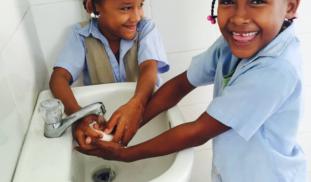72
0
0
Like?
Please wait...
About This Project
World Water Relief (WWR)
Clean water is often unavailable in the Dominican Republic, and while the non-profit World Water Relief (WWR) has taken measures to provide access and education to rural communities, the effects of cleaner water on school attendance and illness rates have not been quantified. To evaluate WWR's impact, I will digitize data of school attendance and clinic patient records before and after WWR, and analyze the connections between clean water and education to better inform infrastructure investment.

Browse Other Projects on Experiment
Related Projects
Bridging the conservation genetics knowledge gap in the Spanish speaking Global South
Latin America hosts 40% of the biodiversity of the world. In order to foster conservation, we seek to improve...
How Does Clean Water Alter Rural Community Health and School Attendance?
Clean water is often unavailable in the Dominican Republic, and while the non-profit World Water Relief...

